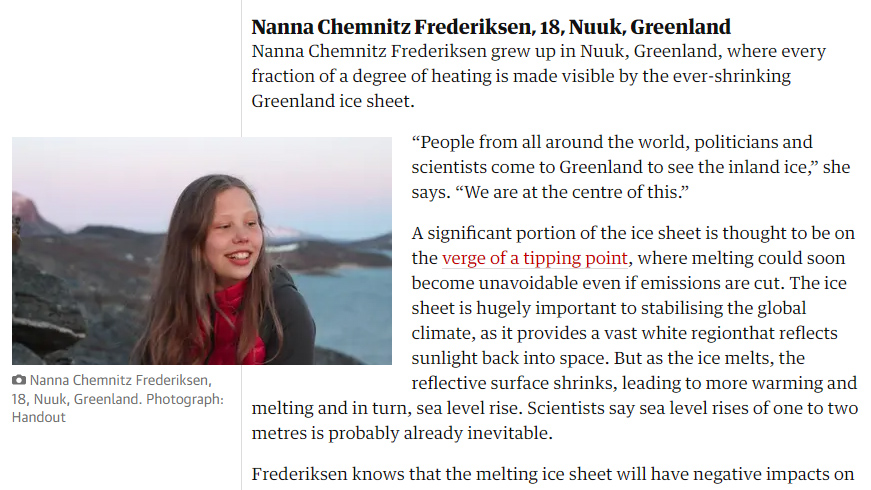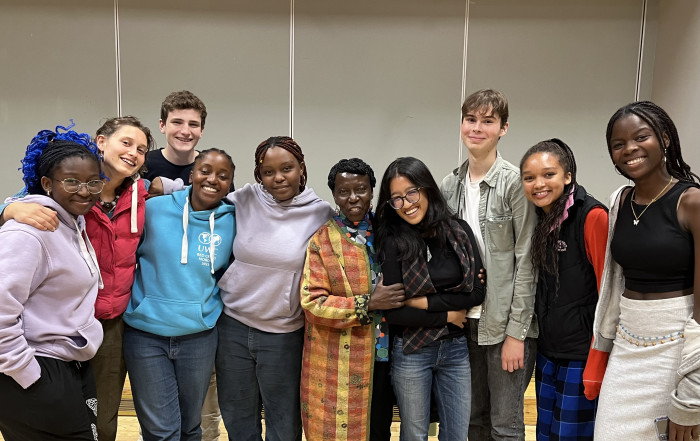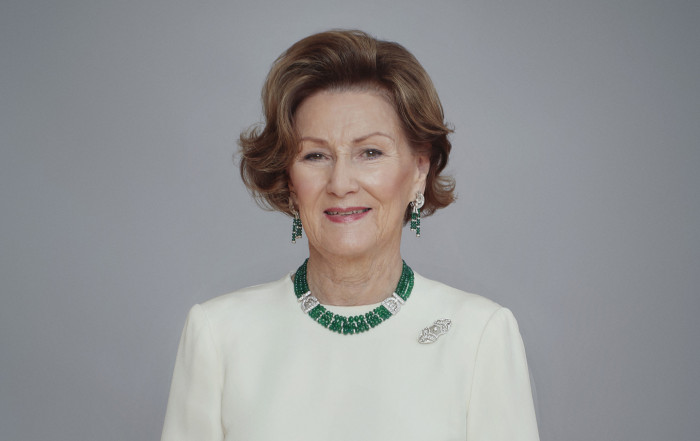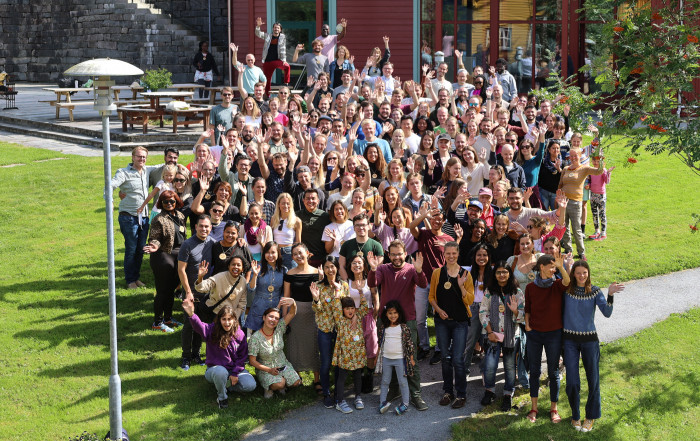“People from all around the world, politicians and scientists come to Greenland to see the inland ice,” she says. “We are at the centre of this.”
A significant portion of the ice sheet is thought to be on the verge of a tipping point, where melting could soon become unavoidable even if emissions are cut. The ice sheet is hugely important to stabilizing the global climate, as it provides a vast white region that reflects sunlight back into space. But as the ice melts, the reflective surface shrinks, leading to more warming and melting and in turn, sea level rise. Scientists say sea level rises of one to two metres is probably already inevitable.
Frederiksen knows that the melting ice sheet will have negative impacts on communities across Greenland, especially in northern settlements such as Qaanaaq where permafrost melting is destabilizing homes and roads and impacting how fishers and hunters operate.
But her real concern lies on the impact it will have globally. “I am not so scared of what the effects of the melting of ice in Greenland will be,” Frederiksen says, “It scares me what effect it can have for the rest of the world.”
Latest News
Visit of the Chair of the UWC International Board
The UWC RCN community was privileged to host Dr Musimbi Kanyoro, the Chair of the UWC International Board, who took time out of her visit to Denmark for a brief visit to RCN. [...]
H.M Queen Sonja visit UWC Red Cross Nordic
We're thrilled to announce that on UWC Day, 21st September, the annual global celebration of the UWC mission and values, we will be joined by H.M Queen Sonja. Queen Sonja has been a [...]
Reunion 2023: A Celebration of Shared Journeys
Last week, we had the pleasure of hosting our alumni crew from the classes of 2003, 2004, 2012, and 2013. Can you believe it's been 10 and 20 years? Laughs, tears, and joy [...]




